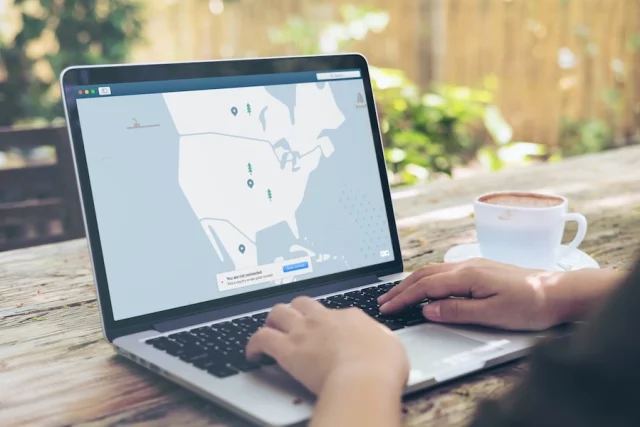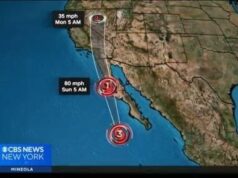We live in an age of digital surveillance, where our online activities are tracked and monitored by governments and corporations around the world. To protect your privacy, a Virtual Private Network (VPN) is one of the most powerful tools you can use. A VPN creates a secure tunnel between your device and the internet, which encrypts all data sent or received over the network. This ensures that no third party can intercept or monitor your activity while connected to the VPN server. In addition to providing privacy protection, a VPN also offers
In this article, we will discuss some of the biggest ins and outs of what a VPN actually does for users so they can make informed decisions about their online security choices. We’ll cover topics like how it works, its advantages & disadvantages, why you should use it, and more!
Creates A Secure Tunnel Between The Device And The Internet
The most important thing a VPN does is to create a secure tunnel between the device and the internet. This secure tunnel encrypts all data sent or received over the network, ensuring that no third party can intercept or monitor your activity while connected to the VPN server. In addition, using a VPN also makes it difficult for hackers to access sensitive information like bank details and passwords. Now, because this requires the use of ports, you would want to find out what ports VPN companies are using and ensure you have access to them. Moreover, some VPN services offer additional protection by using specialized protocols to further secure your connection, such as the OpenVPN protocol.
Encrypts All Data Sent Or Received Over The Network
When you connect to a VPN, all of your data is encrypted before it’s sent over the internet. This means that anyone who intercepts the data cannot read or access its content. The encryption also ensures that any websites or services you connect to will not be able to see your real IP address, which makes it harder for them to track you or your activities. This is especially beneficial for people who live in regions where government surveillance is a problem. Furthermore, the encryption also guards against data tampering and man-in-the-middle attacks, making it a much more secure way to browse the web.
Provides Privacy Protection and Anonymity
A VPN provides users with privacy protection and anonymity. This means that your online activities are hidden from any third parties, allowing you to browse the internet without worrying about being monitored or tracked. Additionally, using a VPN makes it difficult for websites and services to track your activity or gather information about you. This is especially important for those who are concerned about their online privacy and want to remain anonymous.
Bypasses Censorship, Filters, and Allows Access to Geo-Blocked Content
A VPN can also be used to bypass censorship filters that block access to certain websites or services. This makes it possible for users from countries with restrictive internet policies to access the content they need without facing legal repercussions. Furthermore, a VPN can also be used to gain access to geo-blocked content, such as streaming services or websites that are only available in certain countries. This allows users to access content from anywhere in the world without having to worry about being blocked or restricted due to their location.
May Slow Down Your Connection Speed Due to Encryption Processes
One of the biggest downsides of using a VPN is that it can slow down your connection speed due to the encryption processes. Additionally, some VPNs have limited server locations, which can lead to further speed reductions if you are connected to faraway servers. Lastly, many VPNs reduce your internet speeds by adding additional protocols and layers of encryption to your connection, which can further slow down your connection.
Some VPNs Can Be Unreliable and Have Logging Issues
Another disadvantage of using a VPN is that some services can be unreliable, and even have logging issues. This means that your data could be vulnerable to third parties, either because the service logs your activity or due to security flaws in their software or process, in general. Additionally, it’s important to remember that some countries have laws against VPN usage and could penalize users if caught. As such, it’s important to research any potential VPNs you may use and ensure that the service is reliable and trustworthy.
Can Be Used for Illegal Activities
This is the elephant in the room, and it is worth addressing! Although the encryption and privacy protection provided by a VPN is beneficial for protecting user data, it also makes it difficult to track those who are engaging in illicit activity. As such, it’s important to remember that using a VPN should not be seen as a way to avoid the law, and should only be used for legitimate purposes. Now, this does not mean that every user that uses VPN is a criminal, but it is something to keep in mind.
Quality Can Vary, Depending on The Provider
Just because you will pay for something, does not necessarily mean that you will get what you paid for. This is why it is important to research and find a respected and reliable VPN provider to ensure that you are getting the best quality service possible. While some providers may offer better speeds, others may have more advanced security features. It’s important to read reviews and compare different VPNs to find the one that is right for your needs. Furthermore, pay close attention to the differences in the paid vs free versions of the service; some providers may offer limited features in the free version.
In conclusion, a VPN provides users with an invaluable tool for protecting their online privacy and accessing content from all over the world. However, it is important to remember that there are both benefits and drawbacks to using a VPN, such as speed reductions or unreliable services. Additionally, it’s important to remember that a VPN should not be used for illegal activities, and quality can vary depending on the provider. By taking into account all of these factors, users can make an informed decision when it comes to choosing a VPN service.














